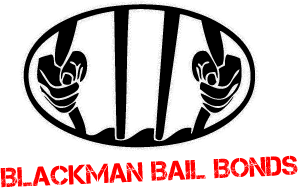One question we get at Blackman Bail Bonds pretty often is – “How exactly does a bail bondsman make money in this industry?” The answer is relatively complicated but simple to describe. Ultimately it’s a gamble, but in the safest way possible for them to maximize reward while minimizing risk.
Say, for example, that you are arrested and have bail set at $20,000. In the state of Pennsylvania, you’d have to pay $2,000 (10% of the bail) as a “surety” to get out of jail before trial. Most people don’t have that kind of cash lying around and lack the liquid assets to get those funds quickly. Enter the bail bondsman, who agrees to pay this $2,000 in exchange for a premium and a written agreement.
How it Works
When you need to bail someone out of jail, you sign a form and pay a premium. This amount varies but is capped by law at 10% of the first $100 posted, and 5% for every $100 after that. In the case of the $2000 bond, the premium would be $105. Part of this agreement may include the right to place a lien on your property, including your home, your car, or other physical items.
If you show up for all proceedings as ordered, the bail bondsman keeps the premium and the $2000 they put up, netting them $105 for very little actual work.

A judge determines bail
Part of the agreement is that if you fail to show up for your court proceedings, a warrant is issued for your arrest, and now the bail bondsman is on the hook for the full $20,000. They can recover this amount through liens, asset seizure, garnishments, and more. You can also be detained by a bail bondsman and returned to jail by them.
Risk Assessment
When you contact a bail bondsman, they’ll collect a lot of information about you. Things such as employment history, criminal history, and other background information. They’ll also want to know about your financial assets. What they want to determine is how much of a risk you are for them if they bail you out.
High bail amounts can mean a tidy profit if you show up for court, but it also means a considerable loss if you don’t. First-time offenders with low flight risk are good bets for a bondsman. Repeat offenders with a high flight risk may not be worth the risk. Large collateral means you have more to risk on your side. After all, you could lose your car, your home, and valued possessions if the person being bailed out doesn’t show up for court because the bail bondsman may be allowed to seize these to recover their losses.
Quantity Vs. Quality
So how would a bail bondsman make money doing this? A bail bondsman can turn a respectable profit by optimizing risk versus reward, and even by focusing on low bail amounts in high quantities. Remember that a bail bondsman can have quite a few clients. $105 isn’t much per contract, but ten low-risk clients in a day tally up to over $1000.
Some bail bondsmen choose to gamble with higher stakes. The higher risks are worth it if they feel that the collateral you put on your contract will be sufficient to pay off your debt, should you fail to fulfill your obligations.
Call on Us
At Blackman Bail Bonds, we’re here to help you get out of a sticky situation. Being arrested and booked isn’t in anyone’s plans for a good day. Don’t stay in lockdown any longer than you have to. Have a friend or loved one give us a call any time, day or night, and we’ll start the process of getting you back home.


